Dean Talks Anime:
Sub Vs Dub, Let Us Never Fight Again
An Opinion by Christopher Kinsey
So for a little while there around 2008 I fell off the anime bandwagon and just kind of drifted. Nothing coming out interested me, my personal life made it hard to get to conventions regularly and I pretty much consumed the familiar. Sometimes I’d get a new title and take a look, but not with the eagerness and enthusiasm I once had. Perhaps it was just a sign of growing up, I thought. Getting married and moving on, putting in those work hours, paying bills, buying one’s own groceries. It piles up, and then you budget your other entertainments and it’s hard for anyone to keep themselves in physical media. Sure, downloading and streaming were stepping up then; but I had a thing against it for the most part and there was also a part of me that still wanted a physical copy, just in case. Maybe it’s a collector thing, maybe I was clinging to the rule of the nineties anime fan where to just have a physical copy was joy in and of itself.
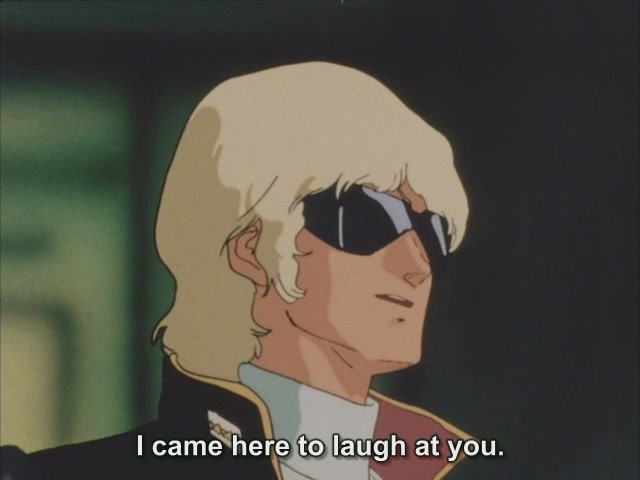
Yeah, pretty much
When I came back I found that something that had been dead and buried had been dragged up, put into a new dress and paraded around on the internet: Sub verses Dub wars. I was kind of dumbstruck. DVDs killed that way back when, right? There shouldn’t be a sane or rational reason that there had to be another round of people fighting over how they HAD to enjoy their overseas product. This didn’t really happen to other fans of other products from overseas. I never heard someone who loved martial arts films tell their fellow enthusiast “You watched The Street Fighter dubbed? You’re dead to me!” And you don’t hear people who like international films curse at a production company for not having an English dub on their DVDs.
Why do we do this to ourselves? Any hobby should strive to make it accessible for anyone to enjoy, yet we divided anime into camps based solely on your favorite way to understand a language you probably don’t speak. I wouldn’t mind this sort of bad blood if there wasn’t already a work around and the reasons there are sides in the first place are generally pointless.
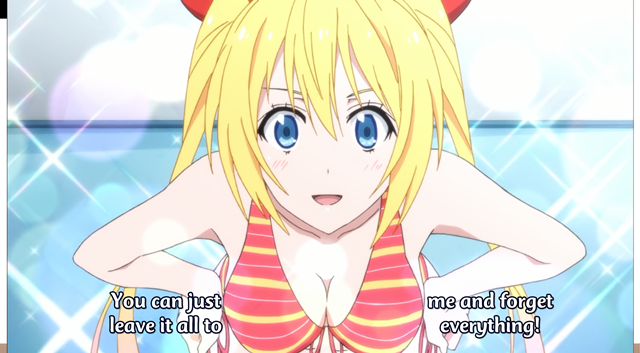
And then the words cover up the… OK problem solved then.
Before I delve into the mire which is each individual side’s stance, let me tell you I am not talking about censorship or dialog/story rewriting. On censorship I am hand in hand with most folks on this issue, it should not be done. If a certain series has an amount of violence and sexuality that should not be shown to kids due to societal pressure, then don’t market it to them. If you feel that culturally you cannot explain certain aspects of Japanese culture like a rice ball… ignore it! The little kid who cares about a rice ball verses a cookie or doughnut is a strange kid indeed. There is a mouse that shoots lightning bolts, you can control it AND it can be your best friend. No one cares what flavor and fashion calories are consumed in a world like that. Story rewriting is a whole other matter, and I think it’s a bigger issue to tackle in another article. I think while it’s usually bad, with the rise of DVD a lot more can be forgiven.
On the side of subtitle I can empathize. They do make a few valid points, such as subtitled being part of the director’s real vision. That’s common sense; anime needs to sell in Japan first in order to build enough momentum to even be considered for proper translations around the world. And you’re not going to consider the needs of an international release like Hollywood does. There’s just no comparison between the two. Then on the technical side the casting of voice actors don’t have the degree of separation an English voice cast has. Familiarity of custom tends to make performances more genuine. And of course there is more ammo in the sub camp these days since amateur translators can easily push out product. And let’s be completely honest, there is a lot of product we will just never see if it were not for the fansubs.
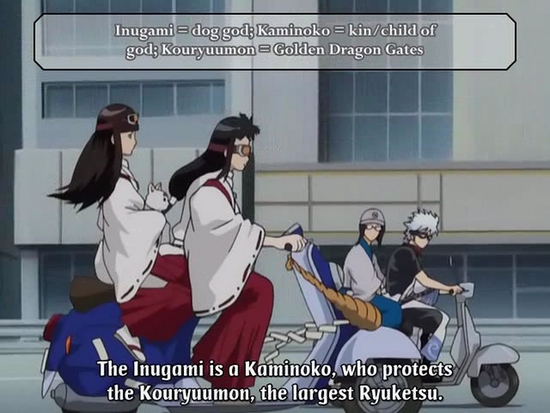
Education, and with the barest loss of cohesion and plot!
However, subtitles have some very steep flaws no one likes to tackle. Back in the 90s the biggest issue was cost. Subs cost more than dubs for reasons not really understood at the time. Didn’t it cost more money to get a voice acting crew together, get scripts printed, sound editing, and more? Well it did, but the cost was passed onto the subtitled VHS tapes because the “Purists” were more willing to shill out for it than those who watched dubbed anime. Cynical thinking but it paid dividends. The Japanese language tends to go by very fast in places, and depending on the translation it can be a daunting task to get everything read in time. Now, I can speed read, it’s a skill I developed over my life. Not everyone has this skill or opportunity to learn. Subtitled anime can help, but it’s not the easiest way to pick up that skill. As such you’ll have to stop and reread things from time to time, breaking your flow of concentration and overall enjoyment. And let’s not forget those people who like to use TV as a nice way to have some background noise. If you don’t speak Japanese you’re in for a rough re-watch while you concentrate on something else. The final elephant in the room rests with the prevalence of fansubs today. Amateur productions are applauded for the speed in which the newest products are translated, not so much in accuracy. On top of this issue there is a practice in which no care is given to anything resembling a joke in Japanese productions. Everything is tossed out for a dirty joke or two. And when you add in fans who claim to have a real vision for their favorite show it’s just another case of someone rewriting a show to fit their specific needs, just like the dubbers did way back when.
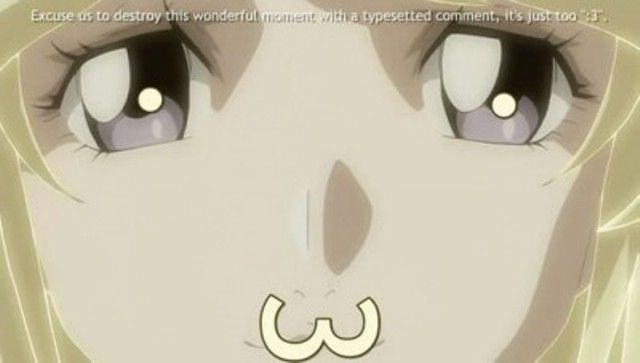
This was something everyone needed, thanks Fansubber!
I feel that people who prefer dubbing are treated with an unjust unkindness. No one is “Stupid” just because they prefer audible acting in their native language when it comes to their favorite media. This has roots in anime’s murky past in America. When the first anime I can think of were brought over, everything was just a push to get a product out as fast as possible, so the very first dubs were short clipped affairs that really did nothing more than point out the action from scene to scene. In all fairness the subject matter, such as 8th Man and Gigantor, wasn’t exactly the kind of work that needed to be handled with care. Things changed with the times, and not for the better. In the 70s and the 80s anime really started to come over in force to fill the syndicated afternoons of TV stations all over the country. Some companies kept the mentality of the first dubs and kept everything clipped and short like Speed Racer, but the revolution came when the practice of rewriting absolutely everything became widespread. Between censorship issues and the loss or changing of complete storylines have left a large scar that is felt even today.
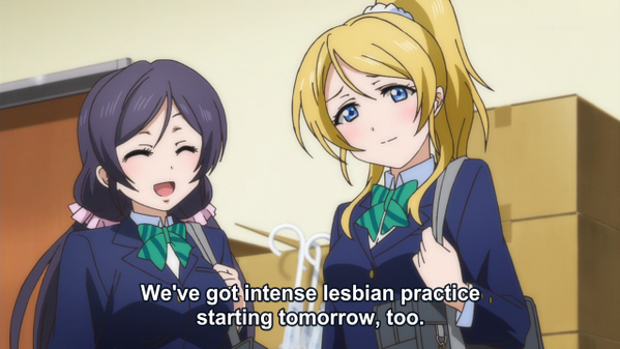
OK Subtitles, I’m back on your side this round.
The 90s tried to keep the storylines as close to the original production as possible, for subtitles. Changing things ran rampant throughout the 90s to the point of having almost two different anime altogether in the same title. I recall the anime Those who Hunt Elves which was a pretty funny anime on DVD, and then it was funny again when I watched the English version and the jokes and plot were different. Of course that is the only real upside; I found that title when it was on DVD. Should I had found this series back in the dark days of VHS I would have been really annoyed, especially if both versions were entertaining. It was bad enough when the sub or the dub side of a product was terrible, then you could be warned off. But to lose content, no one likes less content now do they?
But over the years dubbing in anime got continually better. As the translations got more and more true to the source materials, the writers got more experience in changing things subtly so that the story remains the same but the dialog feels more natural when having to match the animation. And at the same time the voice actors have learned a lot. Long gone were the days of rounding up anyone who wasn’t busy in the building to belt out lines. Now it was about hiring the right people with the right talents to make these strange cartoons to life. English dubbing has gotten so good that many are recognized as even better than the original. I think those who state that the Japanese dub is always superior had better be a native speaker of the language, because let’s be honest beyond our basic human traits we can pick up through voice we have no clue if a Japanese dub is quality. Our languages are just too different to be judges of dialect and those thousands of things that subtly make up a convincing vocal performance.
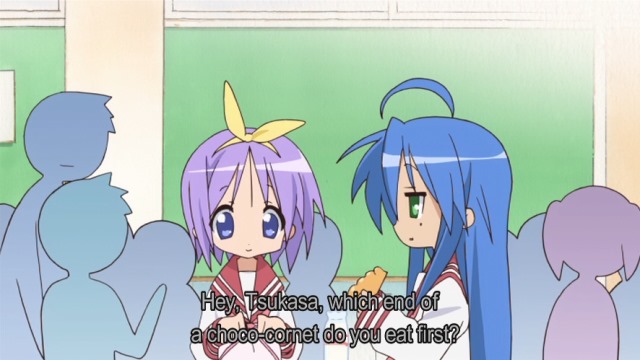
See, every anime deserves a chance to be seen or heard. OK, Maybe I have a few exceptions…
With the creation of dual layering on DVDs and other disc related media I think it’s time we put this debate to rest. Anime is meant to be enjoyed by anyone who can understand it. The method should have some quality and care by people who want to make a good product. Either style can be great or awful, it all lies in how much the producers care. That’s where you need to make your voice heard, making sure your dubs and subs are of quality, not trying to tear the other side down.
Dean The Adequate has patchouli and ponchos for everyone after you all have turned to the side of love and peace after his call to lay down your arms. There will be a three day concert in celebration headlined by Shonen Knife and Yoko Kanno. Do come, love and share but above all else do NOT take the brown Pocky.

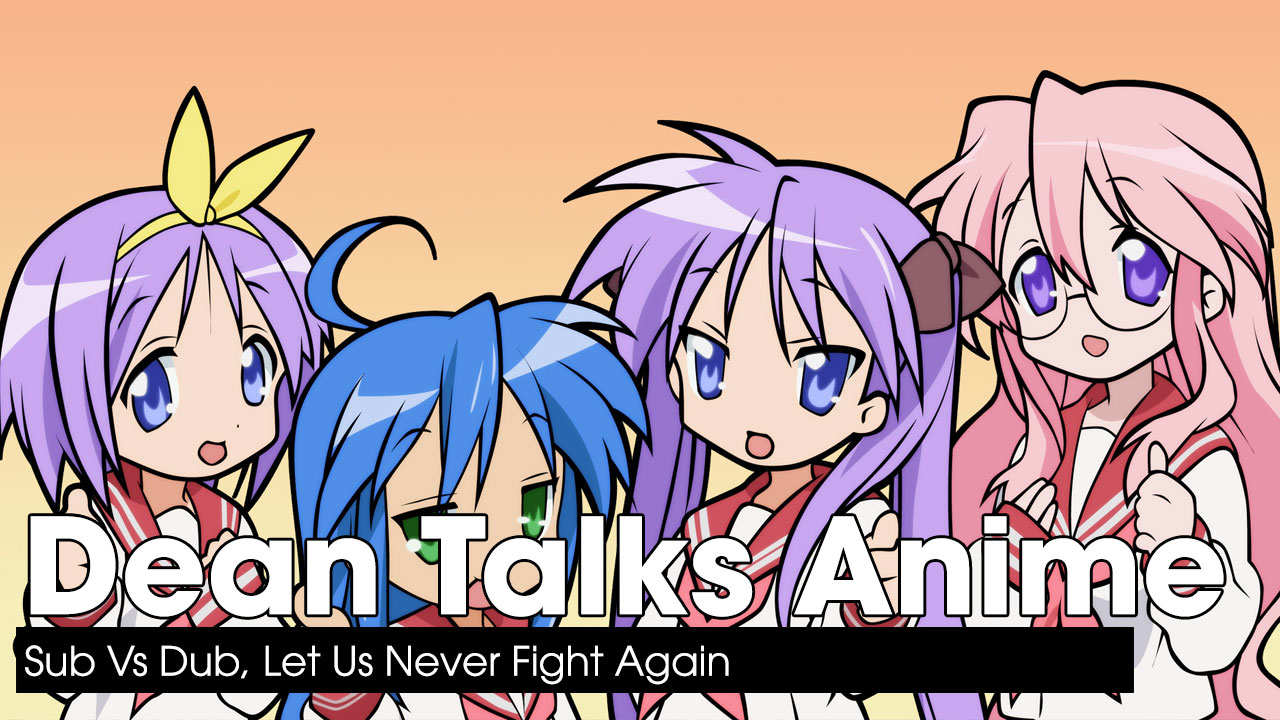
Follow Us!